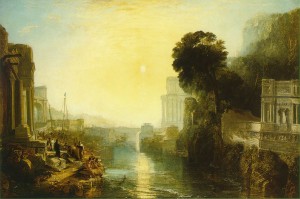Kairos: Portraits at the Hinges of History, is an exploration of 20 kairos moments (a Greek term for a pivotal point in history) and the main characters involved in each event. These watershed moments were often private and preceded the better-known events that thrust these familiar historical figures to prominence. These kairos moments are the stories behind the larger stories of history. This study, delivered in a richly detailed and entertaining literary nonfiction style that emphasizes the human story elements at play in each case, also delves into the historical setting and the background forces at work that make the subject’s response to circumstances unusually remarkable—a true kairos moment.
My aim in utilizing a kairos theme is to bring a fresh twist to the popular history and biography genres by adopting a microcosmic view of a singular event in the life of a historical figure. Combine the entertainment value of David McCullough’s precisely researched classic Brave Companions: Portraits in History with the hinge factor historical perspective of Stephan Greenblatt’s The Swerve: How the World Became Modern, add in a dash of the inspirational spirit of William J. Bennett’s evergreen bestseller The Book of Virtues, then view all through the focused lens of Malcolm Gladwell’s The Tipping Point: How Little Things Can Make a Big Difference, and you will have a sense of this unique approach.
What is Kairos?
Modern English has only one word—time—for the concept of temporal space but the ancient Greeks divided it into two concepts: chronos and kairos. Chronos referred to chronological time as modern societies see it, the constant flow of seconds into minutes into hours. But at certain points along this stream of chronological time there are rare occasions where exceptional circumstances come together like the hinges of a door. These intersections are the right place and the right time for very special events to occur. The Greeks viewed these kairos moments as great cosmic events occurring in Fate’s time that could be seized and used to benefit those who were prepared for them. A kairos moment, given by the gods, could change one’s destiny.
This concept of kairos is at the heart of some of history’s greatest stories. Kairos moments have been seized to raise nations, explore foreign lands and discover new frontiers of science, literature, medicine and art. Many individuals who experienced a kairos moment achieved lasting renown as great leaders, pioneers, artists, thinkers or heroes. Many more simply used a personally defining kairos moment to make a quiet corner of the world a better place.
The modern rational mind is uncomfortable with the concept of fate or chance playing a role in history but a close study of these “hinge” moments raises enduring questions that can challenge even our most logical preconceptions about history. What enabled these men and women to seize their own particular kairos moment in time in such extraordinary, often irrational, ways? Were these people predestined to possess such special skills and powers or were their actions simply rewarded with incredible luck? Are some people simply destined for besheret, a Yiddish word loosely meaning that it is just a person’s fate to be at the right place at the right time? Or, less laissez faire, is there a reason tragedy and hardship so often seem to precede great success in the extraordinary moment? Some historical moments that were harbingers of great external forces at work appear so coincidental that even a novelist would not dare to create a scene with the same details. How do we explain these events in the historical record that seem to have occurred by sheer chance but have been the germination of great movements in art, music or medicine?
Show—Don’t Tell
I intend to let the reader draw their own conclusions to these entertaining questions other than making the practical observation that these people who lived before us often succeeded in the extraordinary moment of their lives because of how they regularly conducted themselves in their ordinary moments. In my research I have found that, more often than not, the pivotal kairos moment actually occurred in a small human moment that preceded the larger and better-known turning point in history that is more often linked to a famous historical figure. Frederick Douglass, in a famous speech titled “Self-Made Men” that he first delivered in 1859 just prior to the Civil War, observed that, “Fortune may crowd a man’s life with fortunate circumstances and happy opportunities, but they will, as we all know, avail him nothing unless he makes a wise and vigorous use of them.” If we, like Douglass, make a close study of history, we will realize that the people who lived before us often succeeded in the extraordinary moment of their lives because of how they regularly worked and conducted themselves in their ordinary moments. The gleaning of this knowledge can inspire us to emulate our predecessors’ most valuable traits—courage and determination, purpose and integrity, work and sacrifice—and adopt them into our own daily life in the modern world. These are simple virtues, but virtue can be the hardest thing to come by in a hard moment unless it is regularly practiced into muscle memory. Learning from the experiences of others is a key to understanding and maximizing own response when a kairos moment finds us, regardless of the trials or tragedies experienced along the way. And in the end, the lessons found in the exploration of kairos moments are the greatest contributions our very human predecessors gave to us—and to history.

